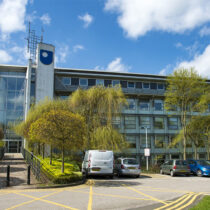Recent research indicates that the invaders who had the worst impact on England were the Anglo-Saxons, rather than the Vikings, as it is widely thought.
The Anglo-Saxons came from Denmark, Northern Germany, the Netherlands and Friesland and carried out a more systematic colonisation than the Vikings, who were pirates and performed numerous migrations. Also, the Viking Age probably started earlier than 793 BCE as it has been thought, probably around 400 BCE. An examination of recent research and various sources indicates this more systematic colonisation.
One of the factors examined was language and how this was affected by the Viking Old Norse. It seems that the latter had no impact on Old English of the Anglo Saxons in the 9th and 10th centuries. Also, after the arrival of the Anglo-Saxons in the 5th and 6th centuries, there is no Celtic language in England, as it was wiped out by the invaders. Only a few Celtic words were used in the Old English of the Anglo Saxons.
A close linguistic examination of the three languages, Celtic, Old Norse and Old English, highlights the minor impact Old Norse of the Vikings had in Old English and the eradication of Celtic by the Anglo-Saxons. The two closely related languages of the Anglo-Saxons and Vikings led to a simplification of English.
This process of language change has been a common phenomenon in other areas of the world. The language is simplified so that people would carry on with trade and communication when two different languages met, leading to the pidginisation, for instance, in old English and French colonies in Africa, the Caribbean and the Pacific.
Large-scale DNA analyses in the modern British indicates that the impact of Viking immigration was not as massive as the arrival of the Anglo-Saxons in the 5th century.
A view supported by many scholars is that the Anglo-Saxons effected a type of apartheid against the local people who spoke Celtic between the 5th and 9th centuries. Another view is that the Anglo-Saxons performed some sort of ethnic cleansing, since the Celtic culture and language only survived in Wales, Scotland and Ireland.
The well-oganised Anglo-Saxon England was harder to conquer and the Vikings most likely married into Anglo-Saxon families, thus their children were often raised by Anglo-Saxon servants. This means that these children adopted their language to an extent. This meddling led to the English of today, rather than a language more similar to Frisian or Danish which would have been the case if the Anglo-Saxons or the Vikings had won the language clash.
Place names also confirm the presence of Scandinavian and Anglo-Saxon settlements in England. The place names in England indicate that the Scandinavians settled on land that was more marginal, before the fight for land increased.
All the above, however, does not mean that the Vikings had a less significant impact on life in England in the 9th century. The Anglo-Saxons came really close to being overrun by the Scandinavians. When king Alfred managed to win the battle of Ethandune and established his rule in Wessex, he saved Wessex and perhaps even the English language. A line was then drawn across the country, with king Alfred settling to the South and the Danes towards the Northeast. Everything behind this border was the Danelaw. Dialects in the entire of England today signify the dominance of Danish language east of this line.
With the rebuilding of monasteries and schools and the use of English instead of Latin for further education Alfred’s policies of identity against the Danes saved the English language as it had survived up to that point. He also initiated the first translation of Bede’s The History of English.
Therefore, all the evidence from written and archaeological sources indicate that the Viking invasion was not as massive as the Anglo-Saxon invasion, 400 years earlier. Their linguistic, material and genetic footprint on England is limited only to a part of the country. The Anglo-Saxons came to comprise up to 40 percent of the population in England at the time while the Vikings did not come close to that. Finally, the Anglo-Saxons did not mix with local people as was the case with the Vikings.
To conclude, the period when piracy, migration, and ethnic cleansing, was predominant, was not initiated by the Vikings, but much earlier.
The original study was published in SKALK.





